“How to lose body fat” is a question I get asked a lot as a nutritionist. Maybe a client wants to shrink their belly, reduce some arm flab, or slim down a double chin—no matter the area they want to target, it’s important to know how to reduce body fat. “There are three key components of a sustainable body fat loss plan,” says Lacy Puttuck, MS, RDN, CISSN, CSCS, a Registered Dietitian at Top Nutrition Coaching:
- “Weight training: Skeletal muscle is metabolically active and burns a great amount of energy even at rest. By increasing and maintaining muscle mass, your overall calorie burn is higher. This higher calorie burn makes keeping fat off more successful.
- Higher protein diet: You must feed the skeletal muscle to maintain it. Eating enough protein provides the building blocks for this to occur. Current research supports 1.5-2 grams per kg of body weight (Philips, 2014)
- Adopting healthy habits: These habits need to include cooking meals at home and avoiding unnecessary calories. Many times, we consume snacks and calories that exceed our metabolic rate. Over time, this will cause fat mass to be gained back. It is important to look at daily habits that will not support fat loss and work with a health professional on making long term adjustments.”
Those are the basics, but read on for a more comprehensive look at how to lose body fat, with proven methods and tips that work, and find out exactly how to lose body fat this year.
What is Body Fat?
 Shutterstock
Shutterstock
Body fat, or adipose tissue, is a major source of stored energy (calories). Its size and function are based on a variety of factors. Within fat tissue, we find nerve cells, immune cells, and connective tissue along with the fat cells. Fat cells can release hormones related to appetite and metabolism and help form steroid hormones (like testosterone). We have subcutaneous fat, located directly underneath the skin, which cushions bones and joints. There’s also visceral fat, or ‘belly fat,’ that gathers deep in the abdomen, where it wraps around digestive organs and the heart.
Weight loss only shrinks fat cell size, not the number. The amount of fat cells you will ultimately have is set in puberty, and they stay put throughout adult life when weight is stable. However, weight gain from extra calories makes fat cells bigger--they expand like a balloon to store the extra fuel. Once the size limit of a cell is reached, new cells are formed.
There are different types of fat, including brown, white, beige, and pink. We typically refer to white fat when talking about body fat loss. It’s made for storage and is the most abundant type. It hangs out in the belly, thighs, and hips and releases over 50 types of hormones, enzymes, and growth factors. Some of these help the liver and muscles respond better to insulin. If there are too many or larger fat cells, insulin doesn’t work as well, and the risk for type 2 diabetes and heart disease goes up.
Essential fat, located in most organs, muscles, and the central nervous system, is a combination of fat types and is required for normal body function. It helps manage hormones like estrogen, insulin, cortisol, and leptin, helps control body temperature, and aids in absorbing vitamins and minerals. If body fat drops too low, there may not be enough essential fat to perform these duties.
RELATED: 15 Quick Ways to Lose Body Fat Percentage in a Week
The Difference Between Losing Weight and Losing Body Fat
 Shutterstock
Shutterstock
Weight loss is the overall decrease in weight from all parts of the body, including fat, muscle, and stored water. It’s critical to remember that muscle is part of that number. We can expect to lose around 20% of total weight from fat-free mass, like muscle, in the process of intended weight loss. (That’s the equivalent of 8 pounds of muscle for a 40-pound weight loss.) When calories are severely restricted (looking at you, 1200-calorie-or-less diets), that amount goes up as the body starts to break down the protein in the muscles and convert it into glucose for fuel. Muscles are active calorie burners. Losing more muscle mass during weight loss can lower metabolism more than what would be expected with a change in body mass. This means you can gain weight (fat) back much more easily.
Body fat loss is the specific reduction of stored fat from the body. Changes in body fat don’t always align with weight measured on a scale, and I’ve frequently seen in my career clients who drop clothing sizes without a comparable change in weight on the scale. Loss of fat while maintaining lean body mass is more important than overall weight loss, considering the problems that can occur with excess fat like that in the belly.
Understanding the Basics
 Shutterstock
Shutterstock
So, how does the body store and burn fat? When we eat, the presence of glucose, fatty acids, and amino acids from food in the intestine triggers the release of the hormone insulin. Insulin tells the cells to open their ‘doors’ and let the nutrients in, and to then store them. While glucose is stored in the form of glycogen in the liver and muscles, tiny fat droplets go into the fat cells. Excess calories from any source (protein, fat, or carbs) trigger fat storage. If the circulating insulin level is high, like what happens with insulin resistance, then the enzyme that breaks down fat (lipase) becomes very active as well. The tiny fatty acids from the broken-down fats are absorbed from the blood into fat, muscle, and liver cells, where they then stay. Fat cells can store glucose and amino acids from proteins, too—but it takes more effort, so they are much more likely to store fat than the other nutrients.
The body needs calories for energy at rest to pump blood, inflate the lungs, and for brain function, among other things. We need calories when we’re active, as the muscles need energy to do their job and move you. We even need calories when we eat—our digestive system needs energy to break down and store the nutrients from the food.
So many needs, it’s no wonder the body has become so good at its survival skills! When it senses deprivation of fuel (calories), some organs in the body make and release hormones that act on cells of the liver, muscle, and fat tissue and have the opposite effect of insulin. The body starts breaking down glycogen into glucose first, followed by stored fat. When body fat is broken down for energy, or ‘burned, ’ the byproducts leave your body through water (in sweat and urine) and as carbon dioxide (through breathing out).
RELATED: This Plan Is How to Lose 5 Percent Body Fat In 2 Weeks
Key Factors That Affect Your Ability to Lose Body Fat
 Shutterstock/PeopleImages.com - Yuri A
Shutterstock/PeopleImages.com - Yuri A
- Metabolism: The human body evolved to value fat storage and to see calorie shortage as a distress signal. Fuel-burning slows to compensate for fewer calories coming in. The body doesn’t know if there’s an intended calorie shortage or a true emergency. Cutting back too much can thus backfire. If you’ve ever been close to running out of gas, you’ve likely changed how you drove to conserve fuel until the next stop—this is a similar scenario. During weight loss, a part of your brain becomes less active, resulting in changes in appetite and hunger hormones such as leptin (“I’m satisfied”) and ghrelin (“I’m hungry”). Fat cells produce leptin, and when they shrink, they make less of it. You feel less full. Ghrelin is made in the stomach and tells the brain it’s time for more fuel; it drives you to eat. During weight loss, ghrelin levels rise and increase hunger. You take in extra calories as you eat more to feel full, with less awareness of the amount you’re truly eating.
- Physical activity can speed up metabolism to a degree. The temporary boost comes from the ‘afterburn’ effect, otherwise known as excess post-exercise oxygen consumption or EPOC, where the calorie-burning rate stays slightly elevated in the hours after exercise. High-intensity exercise results in more circulating epinephrine and human growth hormone, both of which stimulate body fat loss.
- Genetics: Genes linked to weight gain can affect appetite, metabolism, cravings, and body fat distribution. Some genes make it difficult to lose weight even when changing up your food intake and activity level.
- Hormones: Changes in sex hormones can affect body fat. For example, the body tries to store more fat during perimenopause. Fat tissue releases estrogen during a time when the amount is otherwise dropping—all part of the body trying to maintain homeostasis. After menopause, the percentage of body weight coming from fat is higher.
The Significance of Diet in the Process of Losing Body Fat
 Shutterstock
Shutterstock
“When it comes to losing body fat, nutritional intake is the basis for overall success. However, the different aspects of eating may not be what you would expect,” says Courtney Pelitera, MS, RD, CNSC, a Registered Dietitian specializing in sports nutrition & wellness nutrition. “Without a doubt, the most important part of a weight loss diet is to be in a calorie deficit. To put it simply, this means that you are eating fewer calories than you are spending in a day/ week/ month. Other aspects of diet that are significantly important to weight loss are meal timing, nutrient density of food, and nutrient content of food. Some examples of manipulation of these things include intermittent fasting, low-carbohydrate diets, or low-fat diets.”
She continues: “The best way to use nutrition for fat loss is to find what works best for you in order to be in a caloric deficit. Looking at the research, there is no one weight loss diet with better long-term effects as long as the caloric deficit is maintained.
For example, if it is going to be easy for you to not eat food from 6 PM to 10 AM, maybe intermittent fasting is the best weight loss strategy for you. If you don’t mind eating lower-fat foods, maybe a low-fat diet is the right call for you.
The Mediterranean diet is one of the most well-researched and studied diets for long-term effects on weight loss and cardiovascular health. This diet involves eating high amounts of fruits and vegetables, lean sources of protein, and healthy fats like avocado and olive oils.
Of note, higher protein diets are something that I recommend frequently for fat loss. This is because protein helps to preserve muscle and keeps you full for a longer period of time. This allows you not only to eat fewer calories but also to maintain a higher metabolism through higher muscle composition.”
RELATED: The Ultimate Guide to Getting Fit as a Pear Body Type
How to Achieve a Calorie Deficit and the Safest Way to Achieve It
 Shutterstock/Maridav
Shutterstock/Maridav
“A calorie deficit is when your body is using more energy than you are consuming,” says Pelitera. “A good deal of this is determined by a person’s basal metabolic rate. This is how many calories your body burns just surviving (brain function, organ function, digesting food, pumping blood, etc.) on a day-to-day basis. Unfortunately, for many of us, this is not something that can be drastically changed. However, we can change a small percentage of overall calories burned with daily movement and exercise.
Keep in mind that you cannot out-exercise a poor diet. However, you can help the weight loss process a bit by getting more movement each day and utilizing strength training.”
Specific Foods or Nutrients That Can Aid in Losing Body Fat
 Shutterstock
Shutterstock
“Diets higher in overall protein (about 25-30g protein per meal) are shown to have higher satiety levels, leading to less overeating, less snacking, and an overall lower calorie intake,” says Pelitera. “No one food is going to burn fat, but diets high in fiber, fruit and vegetable intake, lean protein sources, and low-fat dairy products provide a vast nutrient profile while promoting overall health and encouraging healthy weight loss.”
The Role of Exercise in Losing Body Fat and Which Types Are Most Effective
 Shutterstock
Shutterstock
“Exercise alone will not aid in weight loss,” says Pelitera. “Studies have shown that exercise increases appetite, and therefore, naturally, we eat more when exercising. However, this absolutely does not mean that people should not be exercising, as the benefits of exercise on cardiovascular, mental health, aerobic fitness, blood glucose levels, and blood pressure are significant.”
She goes on: “Exercise in combination with a caloric deficit is the key to success. Regular aerobic exercise has been linked over the last decade of research to losing and maintaining low body weight throughout the research. This includes things like running, swimming, skating, elliptical, biking, and even walking on a regular basis.”
How to Balance Cardio and Strength Training for Optimal Fat Loss
 Shutterstock
Shutterstock
“We know that both strength training and cardiovascular exercise are very important in overall health and longevity. For weight loss specifically, cardiovascular exercise has been shown to be more effective in long-term weight loss. However, looking at body composition, fat mass in particular, strength training is known to be very important in reducing overall fat mass while also maintaining muscle mass,” says Pelitera.
“When exercising, the order of exercise (cardio vs strength) has not shown to make enough of a difference to be overly concerned with which you do first. My advice to clients is to do the exercise you want to focus on more first. If you want to work on building some strength, do that first. If you want to try to run fast or farther, for example, do cardio first. In theory, you will be more tired for the second exercise, therefore, you might not put your best work in.
Alternatively, if you are prone to skipping a certain part of the workout, like people who love strength training but hate cardio, do the cardio first to make sure it gets done!
A good exercise split is to focus on strength training 2-4 times per week for 45 minutes to 1 hour. Cardiovascular exercise recommendations are 5 days per week at a moderate intensity for 30 minutes, 5 times per week.
Of note, there has been some more recent research on “exercise snacks” that I really like to implement. This is the idea that all exercises do not have to be done at one time. For example, taking a 10-minute brisk walk before work, on your lunch break, and then after work will fulfill your 30 minutes of cardio exercise without feeling so tedious throughout the day.”
RELATED: 12-3-30 Walking Method: 20 Proven Tips to Lose Weight Faster
Debunking Common Exercise Myths Related to Fat Loss
 Shutterstock
Shutterstock
Myth: I only need to increase my cardio exercise for fat loss
Fact: “Cardio is very important for fat loss, however, combining cardio with strength training is the best way to optimize your body to lose fat and not lose muscle mass throughout your weight loss journey,” says Pelitera.
Myth: I should make sure to burn a certain number of calories according to my smartwatch for fat loss.
Fact: “The fact is, our smartwatches and devices are not very accurate at determining how many calories we are burning or how much food we should eat at all. Instead, try using the watch to determine your step count. Make a goal to increase your normal steps by about 1,000 steps per day. Increase this number each week to increase daily movement,” she says.
Myth: I worked out today, so I can eat that extra treat at lunch.
Fact: “This ‘earning my food’ type of mindset is a poor way to treat your relationship with food and your body. It will also not help when it comes to weight loss. Instead, try eating consistently, about the same number of calories every day. Incorporate foods that you love on a weekly basis, including a sweet treat here and there. Try splitting your treat with a friend or family member!” she says.
Beyond Diet and Exercise, The Following Lifestyle Factors Contribute to Body Fat Loss
 Shutterstock
Shutterstock
“When trying to lose body fat and optimize metabolism, it’s important to ensure you are getting optimal sleep and managing stress in addition to quality nutrition and exercise. Both sleep and stress are key players in metabolism,” says Colette Micko, MS, RDN, CDES, a Registered Dietitian. “If you are getting inadequate sleep, generally defined as less than 7 hours per night, it will impact workout performance and recovery from workouts, nutrition habits including overall food preferences and portion sizes, and disrupt the body's natural rhythm to burn fat for energy.”
“Chronic stress can have similar effects and directly and indirectly impact body fat reduction efforts,” she continues. “Being in a state of chronic stress creates a hormonal cascade that can potentially negatively impact mental and physical health. Chronic stress can increase the hormone cortisol, which can create higher blood sugar levels throughout the day and insulin resistance. It can also lead to decreased serotonin, which increases cravings for simple carbohydrates and disrupts natural sleep rhythm.”
RELATED: The 11 Supplements Everyone Should Prioritize, According to a Nutrition Expert
Sleep and Stress Management Impact Body Fat Levels
 Shutterstock
Shutterstock
“Both inadequate sleep and chronic stress can negatively impact body fat levels for a variety of reasons,” says Micko. “Specifically, lack of sleep and chronic stress can:
- Increase hormones associated with chronic inflammation, such as cortisol.
- It can lead to dysregulation of appetite (increased hunger and less responsiveness to feeling full. This makes it harder to stick with your nutrition regimen and more likely to consume higher volumes of food.
- Increase cravings for highly palatable foods, specifically high-fat/high-sugar foods that trigger the pleasure center of your brain.
- Increase insulin resistance, which makes it hard to burn body fat and increases fat storage.
One study found that sufficient sleep can actually accelerate the body’s ability to lose weight and body fat. This study looked at overweight adults who followed a calorie-restricted diet for two weeks while getting 5.5 hours of sleep versus 8.5 hours of sleep. The group who got more sleep lost more weight, reduced body fat, and felt less hunger throughout.”
Advanced Techniques or Technologies That Help in Losing Body Fat
 Shutterstock
Shutterstock
“Some of the more advanced techniques in body fat loss involve a larger time investment from the individual. Many people can lose a significant amount of body fat with small changes to their daily routine, nutrition, and exercise programs. When there are sticking points or very specific goals, more advanced methods may need to be employed,” says Puttuck. “One of the big ones, nutritionally, is weighing food and tracking it all in a calorie and macronutrient counting app. Many people are resistant to adopting this habit because of the time investment. It does allow you to see your food in a detailed way and make very detailed and precise changes depending on goals. This data is also very useful to coaches and dietitians in helping them make those smaller changes.
Another advanced technique for body fat loss is including some High-Intensity Interval Training (HIIT) in the fitness program. This is advanced because you should have a greater than average fitness level before doing HIIT exercise to avoid injury and illness. HIIT has been shown to lead to greater body fat loss and greater retention of lean mass during times of caloric deficit (Viana, 2019).”
How to Tailor Your Fat Loss Plan to Your Body Type or Metabolic Rate
 Shutterstock
Shutterstock
“Metabolic rate is determined by many variables, and you can get measurements done that can estimate this more accurately for you. Knowing your metabolic rate can help you to plan your nutrition and exercise effectively for fat loss. Your metabolic rate does change with age, foods you eat, and changes in skeletal muscle mass,” says Puttuck.
“Body type plays a role in how and where body fat is lost from. The shape of your body determines where fat will be stored more readily and where loss can be challenging. It is important to know that with the right techniques in nutrition and exercise, you can lose that body fat, but it cannot be targeted. When we are in a caloric deficit and working to maintain lean mass, body fat will be lost.
Higher protein diets have been shown to slightly increase metabolic rate due to the higher thermic effect of food protein. Those who eat a higher protein diet during fat-loss periods maintain more skeletal muscle mass and have an overall greater calorie burn throughout the day (Pesta, 2014). Eating higher protein also increases satiety, leading to less caloric intake.”
Common Challenges or Plateaus People Face When Trying to Lose Body Fat
 Shutterstock
Shutterstock
“When trying to lose body fat, it’s important to have realistic expectations. It’s not truly a “plateau” or stall until you have seen no change or progress for three weeks or more. It’s normal to have 1-2 weeks with no change as your body is establishing a new baseline. Losing body fat and losing weight is stress on your body; having periods where your body rests and reaches a new equilibrium is a positive sign that your body has reached a point of maintenance,” says Puttuck.
“Common challenges when people are trying to lose body fat are:
- Skipping meals or irregular meal patterns
- Undereating/underfueling (especially with women)
- Focusing on caloric intake without emphasis on nutrient-dense foods and diet quality
- Not lifting heavy enough promotes muscle growth, which in turn helps you burn more calories at rest and shed more body fat
- Doing the same workout without seeing progress. You need to continually change up your workouts to see results.
How to Overcome a Weight Loss Plateau
 Shutterstock
Shutterstock
“There are many different ways to overcome a weight loss plateau, but making a change or shift to your nutrition, workouts, sleep, or stress management are important areas to start with,” says Puttuck.
“To determine which area of your lifestyle habits needs adjusting, I would recommend spending some time bringing awareness to your current habits. This can include self-monitoring in the form of tracking food intake and sleep habits. Reassessing your food intake to see what patterns may be contributing to your stall can be a helpful first step in overcoming your plateau. Are you eating too little? Are you falling back into mindless snacking patterns or eating late at night? Are you getting enough protein throughout the day? Bringing awareness to your current patterns will help determine the next steps.
It’s also important to continually challenge your body in new ways when it comes to exercise. Making a shift to the intensity, frequency, or training type can help your body shift out of a weight loss stall. This can mean lifting heavier weights, adding more high intensity style cardio into your routine, or just increasing daily movement/walking.
Breaking through a weight loss stall is different for each individual. I would ensure you are getting at least 7 hours of sleep most nights, limit alcohol consumption, add daily stress management into your self-care routine, and change up your workouts every few months.”
How Can You Maintain Your Body Fat Loss Over the Long Term
 Shutterstock
Shutterstock
“One of the biggest contributors to the maintenance of body fat loss is the amount of lean mass that was preserved or gained during the time of loss. Skeletal muscle is metabolically active and burns calories at rest. This leads to a greater resting metabolic rate, making weight loss easier to maintain. Weight training before, during, and after a fat loss program is key to maintaining that fat loss,” says Puttuck.
“It is also important to adopt healthy habits during phases of fat loss, not just go on a diet to lose fat. Long-term fat loss depends on maintaining healthy eating habits and not exceeding caloric needs. Too many times, individuals will take on an extreme diet, lose fat, and then go back to their old ways once the goal is reached. This is not a recipe for maintenance. Work with a health professional to guide you in making those long-term changes that support your fat loss goals.” And if you enjoyed this article, take advantage of these 20 Superfoods for People Over 50.
Cited References
Chouchani ET, Kajimura S. Metabolic adaptation and maladaptation in adipose tissue. Nat Metab. 2019;1(2):189-200. doi:10.1038/s42255-018-0021-8
Turicchi J, O'Driscoll R, Finlayson G, Beaulieu K, Deighton K, Stubbs RJ. Associations between the rate, amount, and composition of weight loss as predictors of spontaneous weight regain in adults achieving clinically significant weight loss: A systematic review and meta-regression. Obes Rev. 2019;20(7):935-946.
doi:10.1111/obr.12849
National Center for Biotechnology Information (US). Genes and Disease [Internet]. Bethesda (MD): National Center for Biotechnology Information (US); 1998-. Nutritional and Metabolic Diseases. Available from: https://www.ncbi.nlm.nih.gov/books/NBK22259/ Accessed 3/27/24.
Bjune JI, Strømland PP, Jersin RÅ, Mellgren G, Dankel SN. Metabolic and Epigenetic Regulation by Estrogen in Adipocytes. Front Endocrinol (Lausanne). 2022;13:828780. Published 2022 Feb 22.
doi:10.3389/fendo.2022.828780
Tirthani E, Said MS, Rehman A. Genetics and Obesity. [Updated 2023 Jul 31]. In: StatPearls [Internet].
Treasure Island (FL): StatPearls Publishing; 2024 Jan- Available from: https://www.ncbi.nlm.nih.gov/books/NBK573068/
van Opstal AM, Wijngaarden MA, van der Grond J, Pijl H. Changes in brain activity after weight loss. Obes Sci Pract. 2019;5(5):459-467. Published 2019 Aug 24. doi:10.1002/osp4.363Sindorf MAG, Germano MD, Dias WG, et al. Excess Post-Exercise Oxygen Consumption and Substrate
Oxidation Following High-Intensity Interval Training: Effects of Recovery Manipulation. Int J Exerc Sci. 2021;14(2):1151-1165. Published 2021 Oct 1.
Velotti, N, Guerreiro VA, Freitas P. Obesity, adipose tissue, and inflammation answered in questions. Journal of Obesity. 2022; 2022:1-11. https://doi.org/10.1155/2022/2252516
Athanasiou N, Bogdanis GC, Mastorakos G. Endocrine responses of the stress system to different types of exercise. Rev Endocr Metab Disord. 2023;24(2):251-266. doi:10.1007/s11154-022-09758-1
Kim JY. Optimal Diet Strategies for Weight Loss and Weight Loss Maintenance. J Obes Metab Syndr. 2021 Mar 30;30(1):20-31. doi: 10.7570/jomes20065. PMID: 33107442; PMCID: PMC8017325.
https://www.hsph.harvard.edu/obesity-prevention-source/obesity-causes/diet-and-weight/
Cox CE. Role of Physical Activity for Weight Loss and Weight Maintenance. Diabetes Spectr. 2017 Aug;30(3):157-160. doi: 10.2337/ds17-0013. PMID: 28848307; PMCID: PMC5556592.
Bellicha A, van Baak MA, Battista F, Beaulieu K, Blundell JE, Busetto L, Carraça EV, Dicker D, Encantado J, Ermolao A, Farpour-Lambert N, Pramono A, Woodward E, Oppert JM. Effect of exercise training on weight loss, body composition changes, and weight maintenance in adults with overweight or obesity: An overview of 12 systematic reviews and 149 studies. Obes Rev. 2021 Jul;22 Suppl 4(Suppl 4):e13256. doi: 10.1111/obr.13256. Epub 2021 May 6. PMID: 33955140; PMCID: PMC8365736.
Willis FB, Smith FM, Willis AP. Frequency of exercise for body fat loss: a controlled, cohort study. J Strength Cond Res. 2009 Nov;23(8):2377-80. doi: 10.1519/JSC.0b013e3181b8d4e8. PMID: 19826285.
CDC Guidelines on exercise.
Viana, R. B., Naves, J. P. A., Coswig, V. S., De Lira, C. A. B., Steele, J., Fisher, J. P., & Gentil, P. (2019). Is interval training the magic bullet for fat loss? A systematic review and meta-analysis comparing moderate-intensity continuous training with high-intensity interval training (HIIT). British journal of sports medicine.
Pesta, D. H., & Samuel, V. T. (2014). A high-protein diet for reducing body fat: mechanisms and possible caveats. Nutrition & metabolism, 11, 1-8.
Phillips, S. M. (2014). A brief review of higher dietary protein diets in weight loss: a focus on athletes. Sports medicine, 44, 149-153.





























 Shutterstock
Shutterstock Shutterstock
Shutterstock Shutterstock
Shutterstock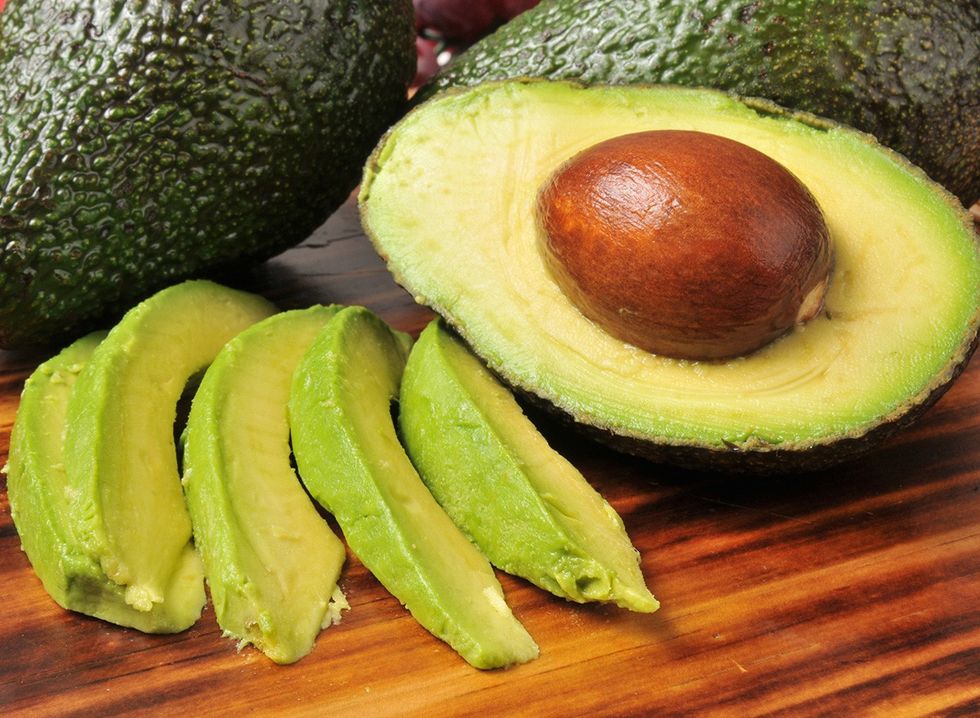 Shutterstock
Shutterstock Shutterstock
Shutterstock Shutterstock
Shutterstock Shutterstock
Shutterstock Shutterstock
Shutterstock Shutterstock
Shutterstock


 Shutterstock
Shutterstock Shutterstock
Shutterstock Shutterstock
Shutterstock Shutterstock/PeopleImages.com - Yuri A
Shutterstock/PeopleImages.com - Yuri A Shutterstock
Shutterstock Shutterstock/Maridav
Shutterstock/Maridav Shutterstock
Shutterstock Shutterstock
Shutterstock Shutterstock
Shutterstock Shutterstock
Shutterstock Shutterstock
Shutterstock Shutterstock
Shutterstock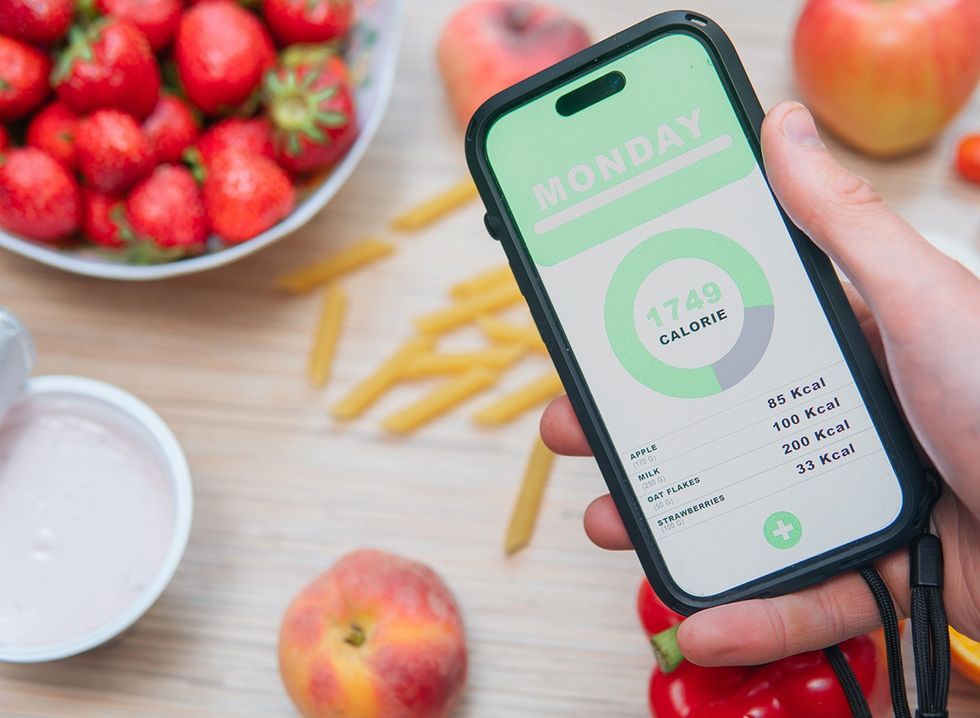 Shutterstock
Shutterstock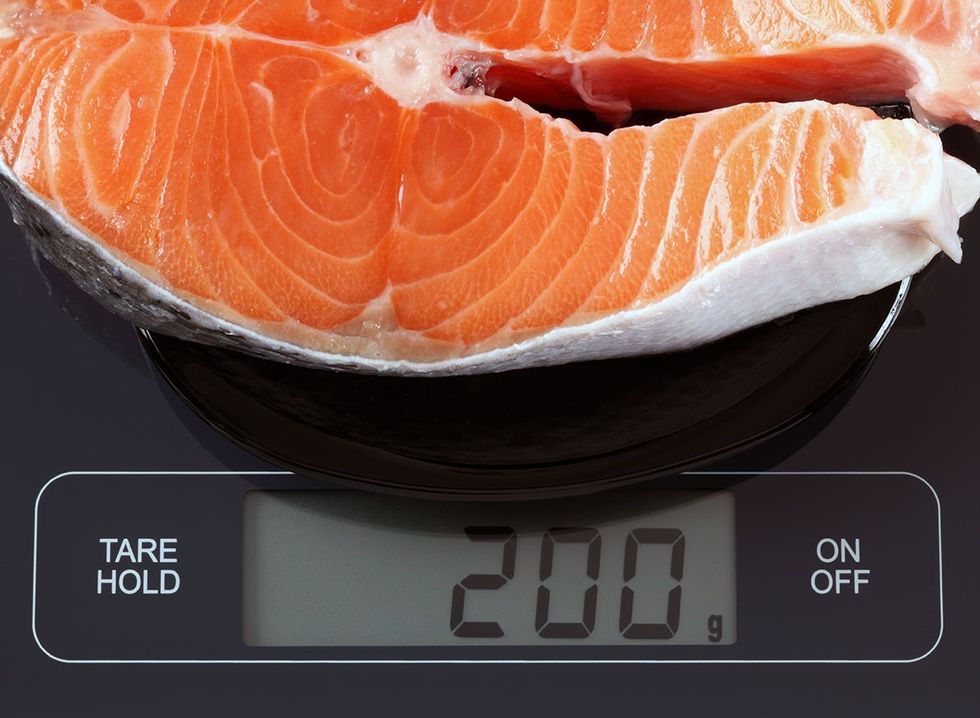 Shutterstock
Shutterstock Shutterstock
Shutterstock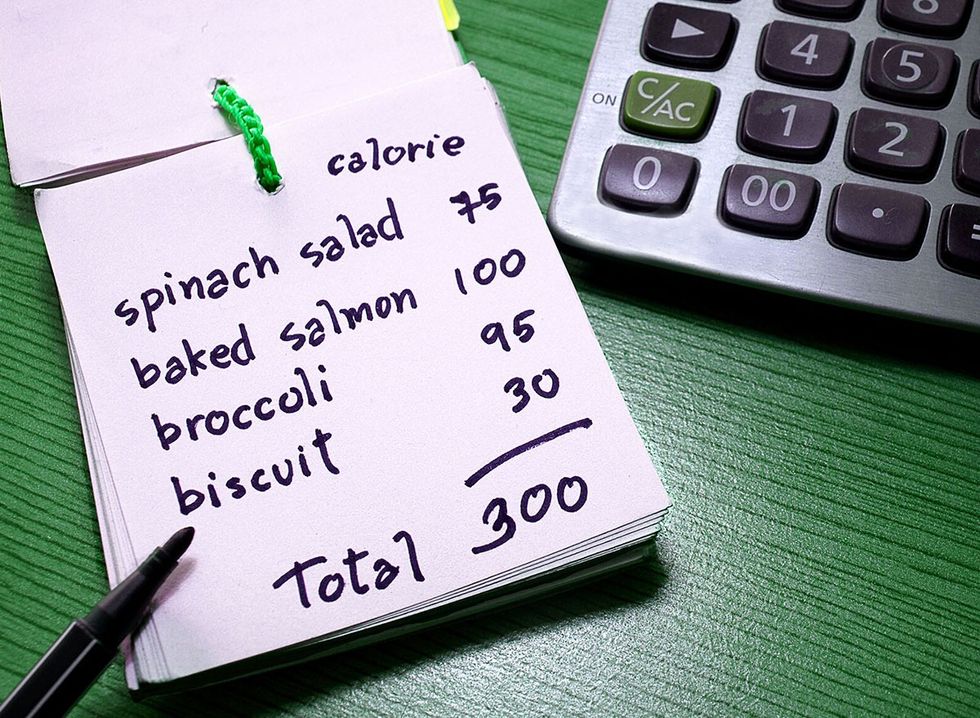 Shutterstock
Shutterstock Shutterstock
Shutterstock


 I'm a Nutritionist and These 9 High-Protein Snacks Keep My Clients Full While Losing 50 Pounds
I'm a Nutritionist and These 9 High-Protein Snacks Keep My Clients Full While Losing 50 Pounds
 Shutterstock
Shutterstock 2. Processed FoodsShutterstock
2. Processed FoodsShutterstock Shutterstock
Shutterstock Shutterstock/Prostock-studio
Shutterstock/Prostock-studio Shutterstock
Shutterstock Pro TipsShutterstock
Pro TipsShutterstock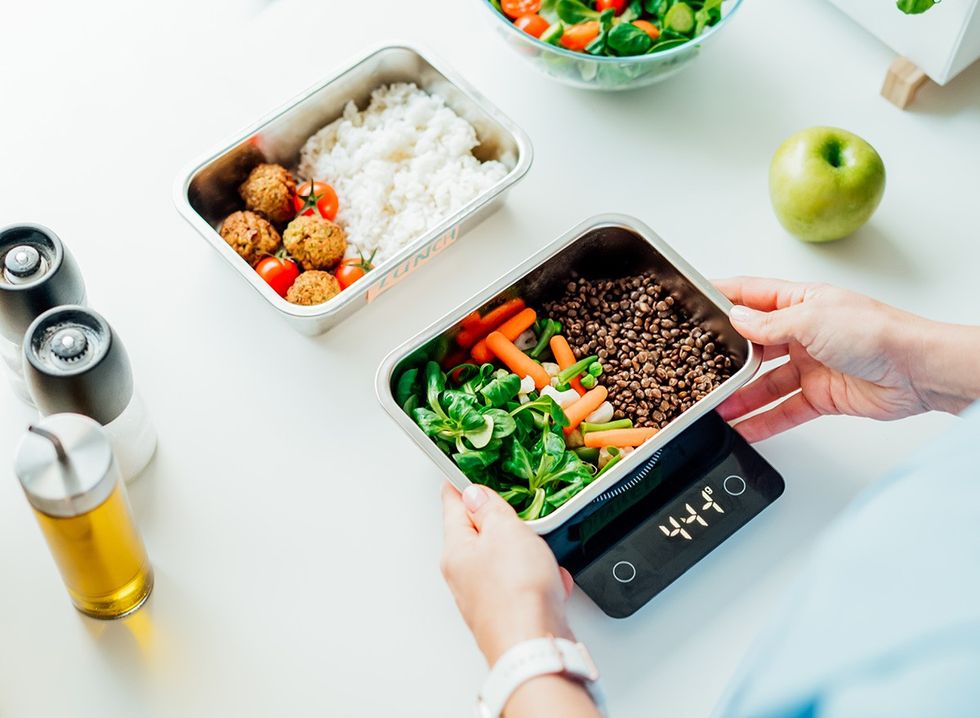 Shutterstock
Shutterstock Shutterstock
Shutterstock Shutterstock
Shutterstock Shutterstock
Shutterstock Don’t Drink as Much AlcoholShutterstock
Don’t Drink as Much AlcoholShutterstock Most Women on GLP-1s Are Making a Few Common MistakesShutterstock
Most Women on GLP-1s Are Making a Few Common MistakesShutterstock Soda and Sugary DrinksShutterstock
Soda and Sugary DrinksShutterstock Shutterstock
Shutterstock Eat BreakfastShutterstock
Eat BreakfastShutterstock And Improve Insulin SensitivityShutterstock
And Improve Insulin SensitivityShutterstock Belly Flab Strip Tip: Sugar and Fat Calories Leave Its Mark on Your BodyShutterstock
Belly Flab Strip Tip: Sugar and Fat Calories Leave Its Mark on Your BodyShutterstock Shutterstock
Shutterstock The Drugs Mimic the GLP-1 Hormone Naturally Produced by the BodyShutterstock
The Drugs Mimic the GLP-1 Hormone Naturally Produced by the BodyShutterstock 3. Deep-Fried ItemsShutterstock
3. Deep-Fried ItemsShutterstock